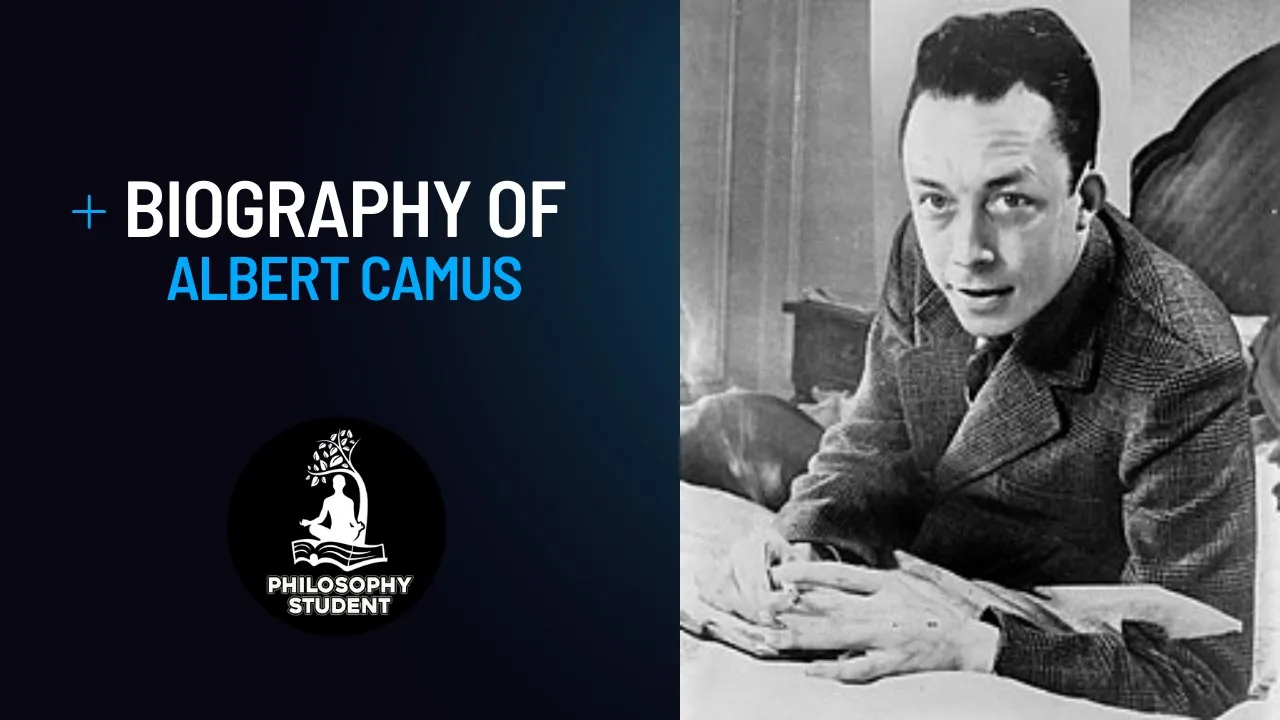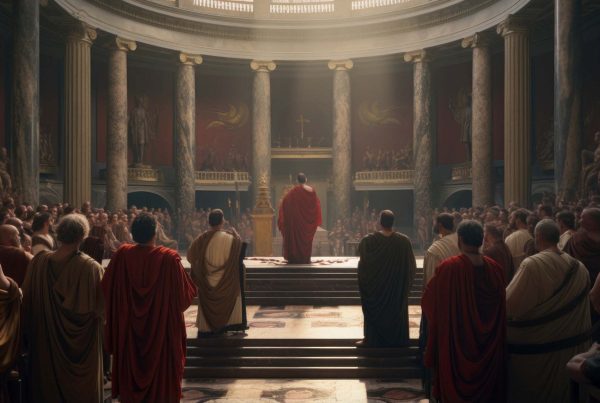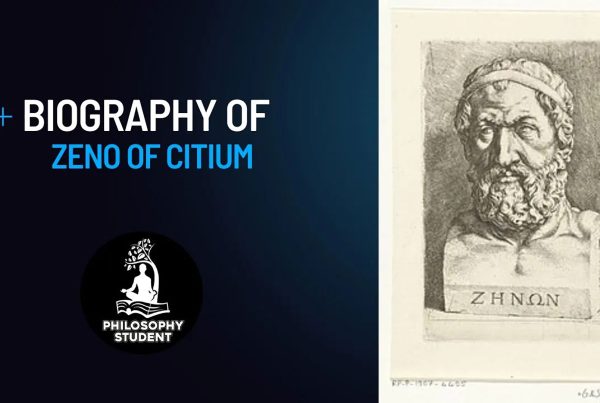With Jean-Paul Sartre, Albert Camus is perhaps the most famous, even iconic, exponent of existentialist philosophy. And yet, he always rejected the label “existentialism” and preferred “absurdism.”
His absurdism was, in any case, like Sartre’s existentialism, a response to living in a world without God. Camus vigorously rejected the all too obvious alternative of nihilism and despair and instead embraced a voluntary acceptance of the value of humanity and a duty to be active in its service. His 1938 play Caligula portrays the monstrous Roman emperor as a sensitive young man who discovers in life not meaning but absurdity. “The world has no importance,” he declares. “Once he realizes that, a man wins his freedom.” The “freedom” Caligula finds unleashes his scorn and vengeance. Before the play ends, however, he realizes he has “taken the wrong path,” that his “freedom is not the right one.” Camus argued that respect for human life and love for the limitations of human endeavor engender an attitude of moderation (la mesure). On these values, one can live a life with shape, purpose, and integrity. Camus was an atheist endowed with a religious spirit, and this drove his philosophy, which he expressed in essays, drama, and fiction, as well as resistance against the German occupiers of Paris in World War II.
Albert Camus was born on November 7, 1913 in Mondovi (today, Dréan), in French Algeria. His father, an agricultural worker, died in the World War I Battle of the Marne in 1914, before his son was a year old. Camus and his mother lived in semi-poverty with other relatives in Algiers. An early teacher, Louis Germain, recognized young Camus’s intelligence and helped him win a scholarship to a fine lyceum near Algiers. Tuberculosis in 1930 forced him to move in with his uncle, however, and he began reading philosophy under the mentorship of his philosophy teacher, Jean Grenier.
While continuing to study, he worked as a tutor, a store clerk, and a functionary in the Meteorological Institute but was able in 1933 to enroll at the University of Algiers, where he completed the equivalent of a bachelor’s degree in philosophy. Although he was drawn to the early Christian philosophers, he was compelled by study of Nietzsche and Schopenhauer toward atheism. As he read these philosophers, he also discovered the work of such fiction writers as Stendhal, Dostoyevsky, Melville, and Kafka.
In 1934, the twenty-year-old Camus fell in love with Simone Hié, a morphine addict. Over his uncle’s objections, Camus married her, largely out of a sense of duty to help her overcome her addiction. When he discovered she was having an affair with her physician, he became estranged from her (they later divorced), and he soon earned a reputation as a womanizer.
For a time, Camus was a communist and, in 1938, began writing for a leftist newspaper, Alger républicain. He became an anticolonialist, but when the government shut down Alger républicain in 1940, Camus moved to Paris to become editor-in-chief of Paris Soir
In the French capital, he wrote the novel L’Étranger (The Stranger), the philosophical essay Le Mythe de Sisyphe (The Myth of Sisyphus), and the play Caligula. His history of tuberculosis disqualified Camus from military service, and he fled Paris as the Germans advanced into it, settling for a time in Lyon. He married the pianist and mathematician Francine Faure. The couple moved back to Algeria, where Camus taught school. Hoping to keep his tuberculosis at bay, he moved to the French Alps, where he wrote La Peste (The Plague) and a play titled Le Malentendu (The Misunderstanding). Camus returned to Paris, was befriended by Sartre and became an intimate of the existentialist circle. He also became a member of the resistance and edited the resistance newspaper Combat. After the war, he enjoyed financial and critical success as a philosophical novelist and completed a new novel, L’Homme révolté (The Rebel).
He was awarded the Nobel Prize for Literature in 1957 and began writing an autobiography, Le Premier Homme (The First Man). He also adapted Dostoyevsky’s novel Demons for the stage. It debuted in Paris in January 1959 to critical acclaim. A year later, on January 4, 1960, he was killed in a car accident near Sens, France.




































